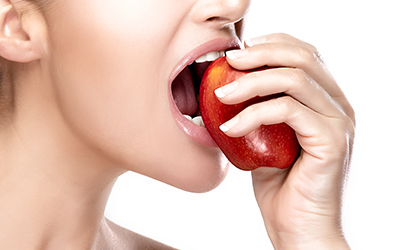Image Credit:
File ID 39443173 | © Casther | Dreamstime.com

Most of us know to avoid sugary treats and soda for the sake of our teeth, but not everyone realizes that certain foods actually promote stronger, healthier smiles. If you’re recovering from procedures like wisdom teeth extractions, undergoing periodontal disease treatment, or preparing for a bone graft dental procedure, a diet rich in the right nutrients can make a significant difference in healing and overall oral health. Below are five foods that are surprisingly beneficial for your teeth and gums—and why your dentist may be happy to see them on your plate.
Raw vegetables like carrots, celery, and cucumbers aren’t just low in sugar—they also stimulate saliva production, which helps rinse away food particles and neutralize acids that lead to cavities. Their fibrous texture acts like a natural toothbrush, scrubbing away plaque from the surface of your teeth. This is especially helpful for patients managing early-stage gum disease or those seeking preventive care.
Many patients undergoing periodontal disease treatment are advised to increase their intake of vegetables to help reduce inflammation and support gum tissue regeneration.
Cheese and other dairy products are high in calcium and phosphates, which help remineralize tooth enamel. Cheese also balances the pH in your mouth, which can lower the risk of tooth decay. Yogurt, especially when unsweetened, contains probiotics that benefit not only gut health but also the oral microbiome—helping to crowd out harmful bacteria.
This can be particularly beneficial for individuals recovering from bone graft dental procedures, as adequate calcium intake is essential for maintaining the integrity of jawbone tissue.
Leafy greens such as spinach, kale, and collard greens are nutrient powerhouses. They are packed with calcium, folic acid, and essential vitamins that strengthen tooth enamel and improve gum health. These foods are often recommended after wisdom teeth extractions to support tissue repair and reduce the risk of complications.
Additionally, folic acid has been linked to better gum health and may reduce the risk of developing periodontal disease. Incorporating a daily salad with these greens is an easy and effective way to give your teeth and gums a nutritional boost.
Although apples contain natural sugars, their high fiber content and water-rich makeup make them a tooth-friendly choice. Eating an apple stimulates saliva production and gently massages the gums, helping to clear away bacteria.
For patients in the early stages of periodontal disease treatment, apples can be a smart snack alternative—especially compared to processed foods or sugary desserts. Just remember to rinse with water or brush your teeth afterward to remove any lingering sugars from the fruit.
Green tea contains catechins—antioxidants that reduce inflammation and kill bacteria. Regularly drinking green tea has been shown in some studies to help prevent cavities and reduce gum bleeding. It’s a beneficial drink for those recovering from oral surgery, such as wisdom teeth extractions, due to its anti-inflammatory and antibacterial effects.
Plus, green tea doesn’t contain the acidity or sugar found in sodas and fruit juices, which means it helps maintain the neutral pH level needed for bone graft dental healing and long-term gum health.
In addition to these five foods, maintaining proper oral hygiene and following your periodontist's instructions after procedures like dental implants, scaling and root planing, or tooth extraction is critical for recovery and long-term success. Consider these bonus oral health tips:
Patients undergoing periodontal disease treatment or other advanced care should always consult with their dental provider before making significant dietary changes, especially during post-op recovery.
With the right combination of treatment and nutrition, you can keep your smile strong, bright, and healthy for years to come.